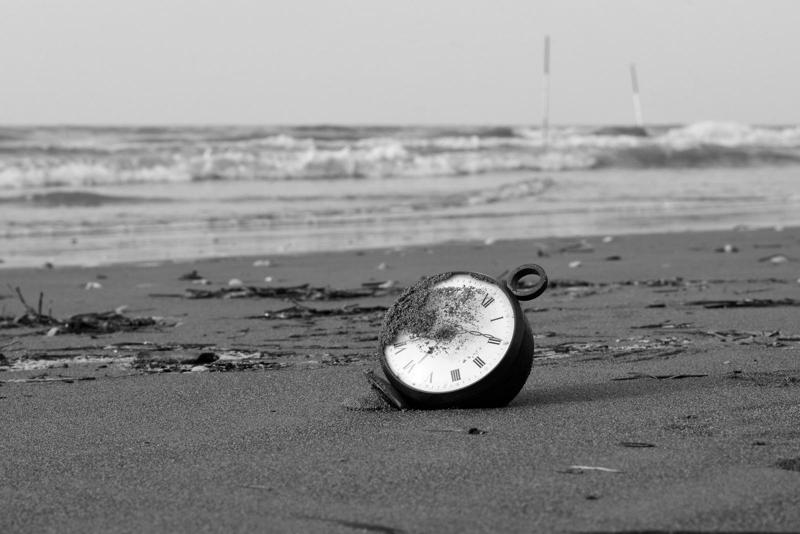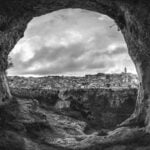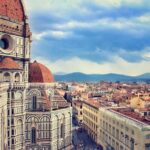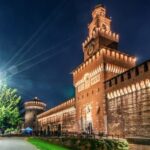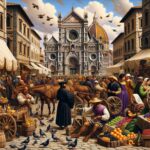Ravenna Italy, a city brimming with hidden gems, has been recommended by the esteemed NY Times Travel Section. This beautiful Italian destination offers an intriguing blend of history, culture, and gastronomy that is waiting to be discovered. From its rich past as the capital of the Western Roman Empire to its stunning UNESCO World Heritage sites and literary connections to Dante Alighieri, Ravenna offers a plethora of experiences for travelers seeking an authentic Italian adventure.
Nestled in the Emilia-Romagna region of Italy, Ravenna boasts a captivating background and history that dates back centuries. As you wander through its streets, you’ll find yourself immersed in a tapestry woven with influences from the Byzantine Empire, which left behind a legacy of breathtaking mosaics adorning its churches and monuments. These mosaic works of art are among the main attractions for visitors to Ravenna, showcasing intricate details and vibrant colors that still awe spectators today.
As you explore Ravenna’s UNESCO World Heritage sites, you’ll have the opportunity to delve into majestic basilicas and mausoleums that leave you in awe. The Basilica di San Vitale, with its exquisite mosaics depicting scenes from Biblical stories, transports visitors to another time and place. Similarly, the Mausoleum of Galla Placidia showcases stunning mosaics adorned with gold leaf that create an ethereal atmosphere within its walls.
But Ravenna is not just a city of history; it is also steeped in literary tradition. It is here where Dante Alighieri found his final resting place after being exiled from his beloved Florence. Visitors can pay homage to this great Italian poet at his tomb in the Basilica di San Francesco or explore the Dante Museum to learn more about his life and works.
Ravenna’s culinary scene also deserves attention, as it too offers unique delights with a local twist. From traditional pasta dishes like cappelletti and tagliatelle to seafood specialties like brodetto, the cuisine of Ravenna is sure to satisfy even the most discerning palates.
In this article, we will guide you through the hidden gems of Ravenna as recommended by the NY Times Travel Section. From exploring local markets bursting with vibrant colors and flavors to embarking on day trips into the surrounding Emilia-Romagna region, we will provide you with insider tips and recommendations for an authentic experience in this captivating Italian city.
Join us on a journey of cultural immersion and discovery as we uncover all that Ravenna has to offer, inspired by the NY Times Travel.
Background and History
Ravenna, Italy is a city steeped in rich history and cultural heritage. Located in the Emilia-Romagna region of Northern Italy, Ravenna has been an important center for art, literature, and politics throughout the ages. Tracing its roots back to ancient times, Ravenna was originally settled by the Etruscans before becoming a Roman stronghold.
During the late Roman Empire, Ravenna served as the capital of the Western Roman Empire. It was during this time that many of the city’s most iconic structures were built, including the stunning Basilica di San Vitale and the Mausoleum of Galla Placidia. These architectural marvels are prime examples of Byzantine art and architecture and showcase incredible mosaics that have stood the test of time.
In addition to its Roman past, Ravenna also played a significant role in early Christianity. The city became an important ecclesiastical center and was adorned with beautiful churches and basilicas. Notably, it was in Ravenna that Dante Alighieri sought refuge after being exiled from Florence. Today, visitors can pay their respects at Dante’s tomb in the Basilica di San Francesco.
As you stroll through the streets of Ravenna, you can’t help but feel a sense of awe at its storied past. The city’s historical significance is evident at every turn, from its ancient walls to its medieval towers. By immersing yourself in Ravenna’s background and history, you will gain a deeper appreciation for its cultural heritage and understand why it has earned its status as a UNESCO World Heritage Site.
Here is a list of must-visit historical sites in Ravenna:
- Basilica di San Vitale: Marvel at the intricate mosaics that adorn this 6th-century basilica, showcasing scenes from both the Old and New Testaments.
- Mausoleum of Galla Placidia: Step into this small yet breathtaking mausoleum, featuring dazzling mosaics that depict celestial scenes.
- Basilica di Sant’Apollinare Nuovo: Admire the famous “Procession of the Magi” mosaic within this 6th-century basilica, along with other stunning Byzantine artwork.
- Tomb of Dante Alighieri: Pay homage to one of Italy’s greatest literary figures at his final resting place in the Basilica di San Francesco.
By exploring these sites and immersing yourself in Ravenna’s history, you will gain a greater understanding of its cultural significance and be transported back in time to an era of grandeur and beauty.
The Ravishing Mosaics
Ravenna, Italy is renowned for its breathtaking mosaics that showcase the city’s rich Byzantine history. These intricate artworks have captivated visitors for centuries and continue to be a major draw for tourists seeking a glimpse into the past. The mosaics of Ravenna are not only visually stunning but also hold immense historical and cultural significance.
One of the most famous mosaic sites in Ravenna is the Basilica di San Vitale. This 6th-century church boasts a series of magnificent mosaics that adorn its walls and ceilings. The jewel-toned tiles depict scenes from biblical stories and portraits of important figures from Byzantine history. The craftsmanship and attention to detail seen in these mosaics are truly awe-inspiring, showcasing the skill of the artisans who created them.
Another must-visit mosaic site in Ravenna is the Mausoleum of Galla Placidia. This small, unassuming building houses some of the finest examples of early Christian art in existence. Inside, visitors will be greeted by an enchanting blue ceiling adorned with golden stars, as well as intricate mosaic panels depicting biblical scenes and symbols of faith. The serene atmosphere within this mausoleum adds to the overall impact of these stunning artworks.
In addition to these iconic sites, there are several other churches and monuments in Ravenna that boast impressive mosaics. These include the Basilica di Sant’Apollinare Nuovo, which features a vibrant procession of saints depicted through mosaic panels, and the Arian Baptistery with its captivating domed ceiling covered in shimmering gold tiles. Exploring these lesser-known sites allows visitors to discover hidden gems within Ravenna’s mosaic heritage.
Visiting these remarkable mosaic sites in Ravenna gives travelers a chance to step back in time and immerse themselves in the beauty and grandeur of the Byzantine era. The mosaics not only serve as a testament to Ravenna’s historical importance but also demonstrate the exceptional talent and creativity of its artists. A trip to Ravenna is truly incomplete without unraveling the majesty of its ravishing mosaics.
Ravenna’s UNESCO World Heritage Sites
Ravenna, Italy is home to a rich and diverse cultural heritage that has been recognized by UNESCO. The city boasts an impressive collection of World Heritage Sites, including majestic basilicas and mausoleums that offer a glimpse into its fascinating history. Exploring these sites allows visitors to immerse themselves in the art, architecture, and religious significance of Ravenna.
The Basilica di San Vitale: A Byzantine Gem
One of the most iconic UNESCO World Heritage Sites in Ravenna is the Basilica di San Vitale. Built during the 6th century, this masterpiece of Byzantine architecture showcases stunning mosaics that depict biblical scenes and figures. The central dome is adorned with intricate patterns and colors that create a mesmerizing effect when illuminated by natural light. The combination of Eastern and Western influences in its design makes it a unique architectural marvel.
The Mausoleum of Galla Placidia: A Roman Treasure
Another must-visit site in Ravenna is the Mausoleum of Galla Placidia. Dating back to the 5th century, this small octagonal building is known for its exquisitely preserved mosaics that cover its walls and ceilings. These mosaics feature vibrant colors and intricate designs depicting Christian symbols and biblical scenes. Stepping inside feels like stepping back in time to witness the craftsmanship and devotion of ancient Rome.
The Basilica di Sant’Apollinare Nuovo: A Journey Through Time
The Basilica di Sant’Apollinare Nuovo offers visitors a visual narrative of Ravenna’s illustrious past. Its long nave is lined with mosaic panels that depict scenes from both Christian and pagan history. From vibrant images of saints to detailed representations of Emperor Justinian I, this basilica provides a captivating journey through time. As you explore each panel, you can’t help but be immersed in the stories and events that have shaped Ravenna’s cultural identity.
Exploring Ravenna’s UNESCO World Heritage Sites is a mesmerizing experience that allows visitors to appreciate the city’s historical and artistic significance. Each basilica and mausoleum offers a unique glimpse into different periods of history, showcasing the diverse influences that have shaped Ravenna over the centuries. Whether you are an art enthusiast or a history buff, these World Heritage Sites are an essential part of any visit to Ravenna.
Dante’s Final Resting Place
Ravenna is not only known for its stunning mosaics and rich cultural heritage, but it is also an important place in literary history. One of the highlights for literature enthusiasts visiting Ravenna is the opportunity to explore the literary legacy of Dante Alighieri, one of Italy’s most celebrated poets. In fact, Ravenna is the final resting place of Dante, making it a pilgrimage site for admirers of his work.
Dante’s tomb, located in Ravenna’s Basilica di San Francesco, is a quiet and serene place to pay homage to the literary genius. The monument features a simple inscription that reads “Dante Alighieri, a Tuscan poet who deserved to be crowned with laurel.” Visitors can marvel at the peacefulness of the tomb and reflect on Dante’s significant contributions to Italian literature.
Aside from his tomb, there are other sites in Ravenna that are associated with Dante. One such location is the Quadrarco di Braccioforte, where it is believed that Dante found refuge during his exile from Florence. This archway serves as a reminder of Dante’s tumultuous life and adds another layer to his connection with Ravenna.
Table: Places Associated with Dante in Ravenna
| Site | Description |
|---|---|
| Basilica di San Francesco | Dante’s final resting place; features a simple inscription dedicated to him. |
| Quadrarco di Braccioforte | Archway where it is believed that Dante sought refuge during his exile. |
For those interested in learning more about Dante’s life and works while in Ravenna, there are dedicated museums and exhibitions that provide in-depth insights into his literary genius. The Dante Museum, located within the Monastery of Classe, showcases artifacts related to Dante’s life and works, including manuscripts and early printed editions. Additionally, the Dante Library offers a wide collection of books and resources dedicated to the poet.
Visiting Ravenna not only provides an opportunity to explore its enchanting history but also offers a chance to delve into the literary world of Dante Alighieri. From his final resting place to the sites associated with his exile, Ravenna allows visitors to immerse themselves in the literary legacy of one of Italy’s greatest poets.
Ravenna’s Gastronomic Delights
Ravenna, Italy is not only renowned for its rich history and stunning mosaics but also for the tantalizing culinary experiences it offers. This enchanting city in the Emilia-Romagna region provides visitors with an opportunity to indulge in exquisite Italian cuisine while incorporating its unique Ravenna twist. From traditional dishes to regional specialties, Ravenna’s gastronomy will leave every food lover satisfied and craving for more.
The Traditional Flavors
When dining in Ravenna, one cannot miss out on the classic Italian staples such as pasta and pizza. The local restaurants and trattorias serve up mouthwatering dishes that showcase the simplicity and freshness of these traditional Italian favorites. Handmade pasta, such as tagliatelle or strozzapreti, is often prepared with locally sourced ingredients and served with a variety of flavorful sauces including ragu Bolognese or pesto alla Genovese.
For pizza enthusiasts, a visit to Ravenna would be incomplete without trying the “piadina.” Originating from the Emilia-Romagna region, this thin flatbread is typically filled with savory ingredients like cheese, cured meats, vegetables, and herbs. It is a popular street food option that captures the essence of the region’s cuisine.
Ravenna’s Seafood Specialties
Situated near the Adriatic Sea, it comes as no surprise that seafood plays a prominent role in Ravenna’s culinary scene. Seafood lovers will delight in the abundance of fresh fish and shellfish options available throughout the city. Popular dishes include risotto ai frutti di mare (seafood risotto) which features a delightful combination of tender rice cooked in a rich broth infused with flavors from shrimp, calamari, clams, and mussels.
Another must-try seafood delicacy is the local specialty called “anguilla in porchetta.” This dish consists of eel, marinated in a mixture of aromatic herbs and spices, and then roasted to perfection. The result is a succulent and flavorsome piece of fish that truly captures the essence of Ravenna’s gastronomy.
The Sweet Side
No culinary journey in Ravenna is complete without indulging in their tempting sweet treats. The city is renowned for its delectable pastries and desserts, which reflect the influence of both Italian and Byzantine traditions. One of the most famous desserts from Ravenna is the “Cassata di Ravenna,” made with layers of sponge cake, sweetened ricotta cheese, candied fruit, and chocolate.
For those with a love for gelato, Ravenna offers an array of flavors that will satisfy any craving. From classic options like pistachio or hazelnut to unique combinations such as fig and balsamic vinegar, there is something to please every palate. Be sure to visit one of the gelaterias in town and savor the creamy richness that sets Italian gelato apart from others.
Charming Local Markets
Ravenna, Italy is not only known for its stunning mosaics and rich cultural heritage, but also for its charming local markets. These vibrant markets offer visitors a unique opportunity to experience the authentic flavors and colors of Ravenna.
One of the most popular markets in Ravenna is the Mercato Coperto, or Covered Market. Located in the heart of the city, this bustling market is filled with stalls selling a variety of fresh fruits, vegetables, meats, cheeses, and other local products.
Visitors can wander through the aisles, taking in the sights and smells of the market while sampling some of the region’s best produce. This is also a great place to pick up some souvenirs or gifts to bring back home.
Another must-visit market in Ravenna is Piazza del Popolo Market, which takes place every Wednesday and Saturday. This outdoor market offers an array of products including clothing, accessories, household items, antiques, and more. It’s a lively atmosphere where locals gather to shop and socialize. Here, visitors can find unique treasures while immersing themselves in the local culture.
For those seeking a true culinary experience, there are several specialty food markets scattered throughout Ravenna. One notable example is Mercato Albinelli, which dates back to 1931 and is considered one of Italy’s most iconic food markets. Here, you can find an abundance of regional delicacies such as cured meats like prosciutto di Parma and parmigiano reggiano cheese.
Visiting these charming local markets allows travelers to truly immerse themselves in the vibrant culture of Ravenna. From fresh produce to unique souvenirs and delicious regional delicacies, these markets are an essential part of any visit to this enchanting Italian city.
| Market Name | Operating Days | Specialty Products |
|---|---|---|
| Mercato Coperto | Daily | Fresh produce, meats, cheeses |
| Piazza del Popolo Market | Wednesday and Saturday | Clothing, accessories, antiques |
| Mercato Albinelli | Daily | Regional delicacies like prosciutto di Parma, parmigiano reggiano cheese |
Day Trips from Ravenna
While Ravenna itself offers a multitude of cultural attractions and historical sites, taking day trips to explore the surrounding Emilia-Romagna region is an excellent way to expand your Italian adventure. The region is renowned for its picturesque landscapes, charming towns, and culinary delights.
One must-visit destination from Ravenna is the city of Bologna, often referred to as “La Grassa” (the Fat One) due to its rich culinary heritage. Bologna is famous for its mouthwatering cuisine, including the iconic tortellini and mortadella. The medieval city center is filled with intricate architectural wonders, such as the Two Towers and the stunning Piazza Maggiore. Don’t miss the opportunity to climb up one of the towers for panoramic views of this enchanting city.
Another worthwhile day trip option is Modena, a city known for its cultural heritage and automotive history. Explore the beautifully preserved Cathedral of Modena and marvel at its striking Romanesque facade. Visit the Enzo Ferrari Museum to learn about the legendary Italian sports car manufacturer or take a tour at a traditional balsamic vinegar producer to discover how this exquisite condiment is made.
For wine enthusiasts, a visit to the town of Faenza is highly recommended. Known for its production of Sangiovese wines, this charming town offers a unique opportunity to indulge in wine tastings while discovering its quaint streets lined with historic buildings. Don’t forget to visit Palazzo delle Esposizioni, home to Faenza’s renowned ceramics museum which showcases exquisite pottery dating back centuries.
By venturing beyond Ravenna’s borders into Emilia-Romagna, travelers can truly immerse themselves in all that this diverse region has to offer. Whether it’s exploring medieval cities like Bologna and Modena or savoring delectable wines in Faenza, each day trip promises a unique and enriching experience that perfectly complements the cultural immersion in Ravenna itself.
Insider’s Guide to Ravenna
Ravenna, Italy is a city rich in history and culture, filled with hidden gems ready to be discovered by travelers seeking an authentic experience. To truly immerse yourself in the local culture and make the most of your time in Ravenna, it is invaluable to have tips and recommendations from those who know the city best – the local residents. Their insight will provide you with a unique perspective and help you uncover the true essence of this vibrant Italian city.
One valuable tip from locals is to take advantage of the extensive biking infrastructure in Ravenna. The city is known for its flat terrain, making it perfect for exploring on two wheels.
Renting a bicycle from one of the many rental shops in town allows you to easily navigate through narrow streets and uncover hidden corners that might otherwise go unnoticed. Follow one of the suggested cycling routes recommended by locals, such as the “Mosaic Route,” which takes you through some of Ravenna’s most stunning UNESCO World Heritage Sites where you can admire breathtaking mosaics.
Another recommendation from locals is to indulge in Ravenna’s thriving street food scene. While it may be tempting to dine at fancy restaurants, opting for local street food vendors provides an opportunity to taste traditional dishes prepared with local ingredients at affordable prices.
Don’t miss out on trying piadina, a thin Italian flatbread typically filled with cheese, cured meats, or vegetables. Locals also suggest visiting outdoor markets like Piazza del Popolo or Mercato Albinelli to explore stalls selling fresh produce, regional specialties, and handcrafted souvenirs while getting a feel for daily life in Ravenna.
If you want to venture beyond Ravenna’s borders and experience more of the Emilia-Romagna region, locals recommend taking day trips to nearby towns such as Bologna or Ferrara. Bologna is renowned for its medieval architecture and mouthwatering cuisine, including tortellini and mortadella.
Meanwhile, Ferrara, with its well-preserved Renaissance architecture, offers visitors a glimpse into Italy’s illustrious history. By exploring these nearby destinations, you can broaden your understanding of the region and see how Ravenna fits into the larger tapestry of Italian culture.
By following the tips and recommendations provided by local residents, you can create an authentic and immersive experience during your time in Ravenna. Discovering hidden corners on a bicycle, savoring street food delicacies, and venturing beyond the city limits to explore nearby towns will reveal the true essence of this vibrant Italian gem. Let the insider’s guide from local residents be your compass as you embark on an unforgettable journey through Ravenna’s rich cultural heritage.
Conclusion
In conclusion, Ravenna Italy is a city that truly offers a unique and immersive cultural experience. From the rich history and stunning mosaics to the UNESCO World Heritage sites and literary legacy of Dante, there is something for everyone to discover and appreciate. The recommendations provided by the NY Times Travel section serve as an excellent starting point for anyone looking to explore this hidden gem.
One of the highlights of Ravenna is undoubtedly its ravishing mosaics. These Byzantine treasures are unlike anything you’ll find elsewhere in Italy, and their intricate designs and vibrant colors are sure to leave a lasting impression. Exploring the majestic basilicas and mausoleums that house these mosaics is a must-do experience while in Ravenna.
Additionally, Ravenna offers much more than just its historical sites. The city’s gastronomic delights, with their unique Ravenna twist, are a treat for food enthusiasts. Be sure to visit the charming local markets to experience the vibrant colors and flavors of the region firsthand.
Beyond Ravenna itself, there are also numerous day trip options available in the surrounding Emilia-Romagna region. Whether you’re interested in exploring other historical cities like Bologna or indulging in wine tasting in Romagna, there are plenty of opportunities for further exploration.
Frequently Asked Questions
Is Ravenna Italy worth visiting?
Ravenna, Italy is definitely worth visiting for those seeking a unique combination of history and art. The city holds immense historical significance as the capital of the Western Roman Empire, and later on, the Byzantine Empire. Its most renowned attractions are the extraordinary mosaics found in various UNESCO World Heritage sites, including the Basilica of San Vitale and the Mausoleum of Galla Placidia.
These beautifully preserved mosaics display intricate craftsmanship, vibrant colors, and depict religious or imperial themes. In addition, Ravenna offers charming streets lined with historic buildings, pleasant squares where locals gather, and a relaxed atmosphere that allows visitors to explore at their own pace.
How many days do you need in Ravenna?
While it’s possible to see some of Ravenna’s highlights in a day trip from nearby cities like Bologna or Florence, I would recommend spending at least two or three days in Ravenna to fully appreciate its treasures. This allows ample time to explore each site without feeling rushed and have opportunities to immerse yourself in the city’s atmosphere.
Additionally, by staying longer, you can also venture beyond the main tourist areas and discover hidden gems such as lesser-known churches with remarkable mosaics or peaceful gardens perfect for relaxation.
Is there much to see in Ravenna Italy?
Despite its small size, there is an abundance of attractions in Ravenna, making it an excellent destination for art enthusiasts and history buffs alike. Alongside its iconic mosaic-adorned sites mentioned earlier, there are other noteworthy landmarks such as Dante’s Tomb – commemorating the famous Italian poet Dante Alighieri – which pays homage to his connection with Ravenna during exile. The Arian Baptistery showcases an ancient baptistery decorated with stunning mosaics done in a different style than those found elsewhere in Ravenna.
Furthermore, art galleries dot the cityscape exhibiting contemporary works inspired by Ravenna’s rich artistic heritage. Besides these cultural offerings, visitors can indulge in delicious local cuisine at traditional trattorias and explore the vibrant local market for an authentic taste of Ravenna.

I’m a passionate traveler, writer, and Italophile. My fascination with Italy’s history, art, and culture has led me on countless adventures across the Italian landscape. Through “I Live Italy,” I share my love for this extraordinary country and aims to inspire others to explore its boundless beauty.

